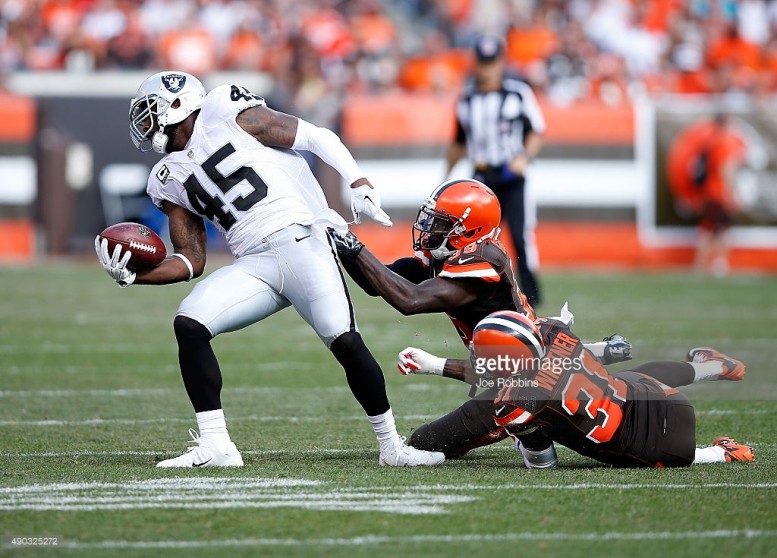It may not surprise you to hear that the Cleveland Browns do a lot of things in ways that the Pittsburgh Steelers do not. If you simply look at the won-lost records of the respective organizations, it would strongly suggest a correlation between, and partial explanation behind, each franchise’s respective successes and failures.
There are some ways of doing business that seem less obviously tangible to the end product of winning and losing on game day, however, that are also worth noting the distinction between, and the Browns have just so happened to make this a recent topic of discussion—or their latest front office has, anyway.
Over the course of the past week or so, the brain trust over in Berea has done some significant roster culling. They may have lost some very significant pieces through unrestricted free agency, but they also recently released two of their key defensive starters, veterans that they brought in at a high price, whom they believed could help change their culture.
Inside linebacker Karlos Dansby and safety Donte Whitner both signed with the Browns during the 2014 offseason, hoping to bring their own experiences in Arizona and San Francisco to Cleveland to help extract a winning formula out of a perpetually floundering organization. Whitner, a local player, was viewed in particular as a significant addition.
But just two short years later, they both find themselves back on the open market, this time as street free agents after the Browns chose to release them from their current contracts.
To be clear, the issue here is not the front office’s decision to release a couple of aging starters, even if they may have been performing well (Dansby had two forced fumbles and three interceptions last season; Whitner 81 tackles, 1.5 sacks, and a forced fumble).
It’s not unusual in the slightest for a new regime to desire to put their mark on the product, part of the process of which is wiping away the fingerprints of the previous regime. That Whitner will soon turn 31 and Dansby is already 34 naturally do not help their positions.
The issue is not the action itself, but rather the timing. The Browns chose to release two veteran, respected players around the league, and they did so already weeks into free agency. For an organization that already bears a reputation as one that players do not want to play for, this is seen as just another slap in the face.
It is no surprise that we saw a free agency exodus coming from how of Berea this year—they are abandoning a sinking ship. These are players who did their time in Cleveland and chose to move on to play for somebody else. It would not surprise me if some of the departures did not even really field serious offers from the front office.
Contrast this scenario to the way that the Steelers tend to go about handling such situations. A couple of years back, they chose to release LaMarr Woodley, and they did so with a post-June designation. But they did it early on, to give him a fairer chance of maximizing both his value and playing opportunity on the open market.
The NFL may be a business, but it’s also a people business, and our business is built on forging relationships. Even when those relationships end—when a player leaves in free agency or an organization releases a player—there is a level of respect that should be adhered to, because there will be ramifications for your business model down the road.








